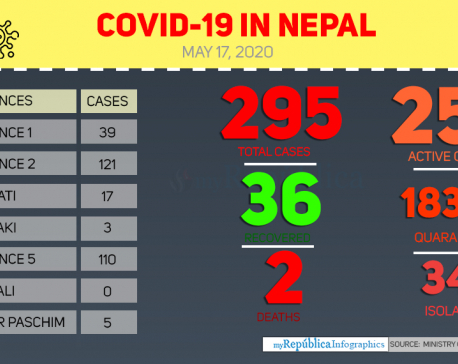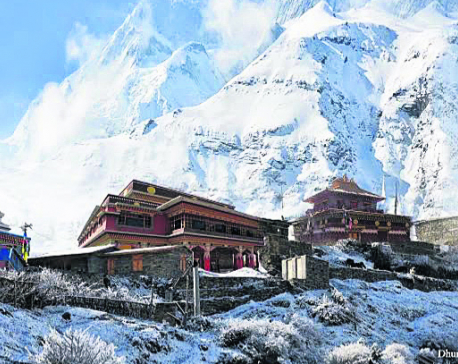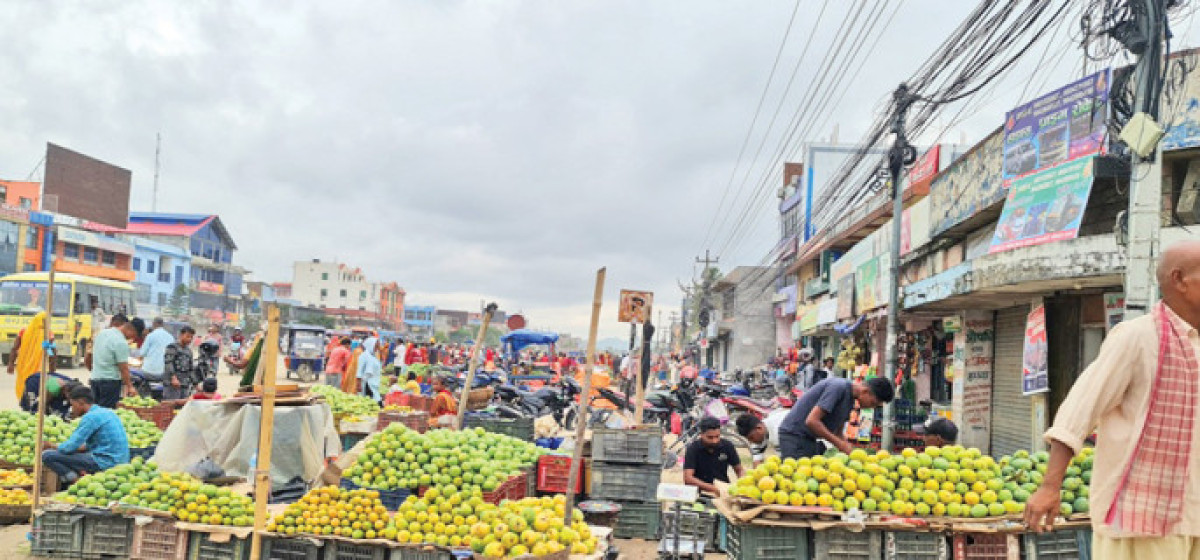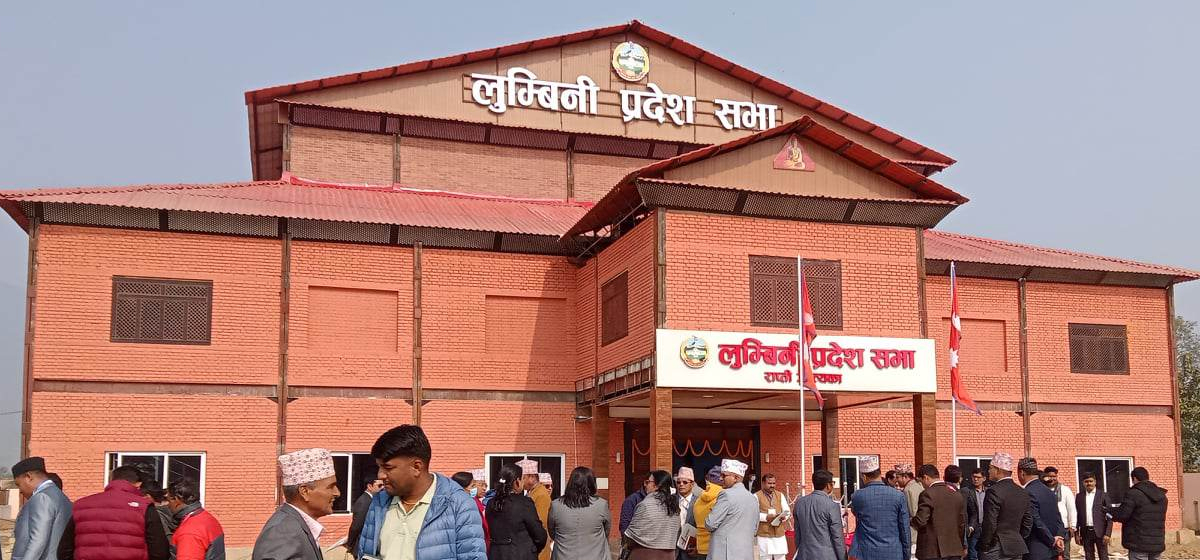
OR
Opinion
International Human Trafficking: Nepal's Burgeoning Humanitarian Crises
Published On: June 10, 2023 08:30 AM NPT By: Dr Shishir Bhatta


Dr Shishir Bhatta
The author is a researcher and a registered dental surgeon in Nepal. Currently, he is pursuing his Masters of Social Work in Western Sydney University, Australia.news@myrepublica.com
Human trafficking is a multifaceted crime which entails the recruitment, transportation, transfer, harboring or receipt of individuals by application of force, fraud, coercion or abuse of power for the purpose of exploitation.
Synonymously explained as 'Modern Slavery' or 'Trafficking in Person', human trafficking is recognized as the second rapidly budding criminal business in the world and its ubiquitous incidence in Nepal is a serious threat to the government's humanitarian efforts.
Bitter but true, Nepal is denounced as a source, transit, and destination country for modern-day slavery. In reference to reports released by the National Human Rights Commission in 2022, around 40,300 Nepalese were trafficked over the past two years whereas, around 1.9 million people are on the verge of getting trafficked.
The rights activists say that aspiring migrant workers, Nepalese in foreign employment, workers in the adult entertainment sector, females from rural areas, missing persons and child laborers are amongst the highly susceptible category. Moreover, Nepal has emerged as a center of conveyance to trade Bangladeshi and Sri Lankan migrants to the Middle East using forged Nepali travel certificates, thereby eluding administrative hassles. Therefore, Trafficking in Person Report, 2022, has positioned Nepal in Tier 2, pinpointing its incompetence to meet the minimum standard for elimination of trafficking.
Explicitly in Nepal's milieu, the widespread forms of international human trafficking are for forced labor, domestic servitude, prostitution and organ extraction. The illicit 'human transaction' of these innocent Nepali women, men and children are done in destination countries like India, Malaysia, China, Russia and the Gulf countries.
Trafficking of Nepalese women and girls to Indian brothels was established in the 1960s. It is estimated that nearly 50 females are trafficked from Nepal to India on a daily basis. Nepalese girls are preferred prostitutes in India, attributed to their attractive skin color and misconstrue that sex with Nepalese virgins can cure AIDS. Moreover, some victims are traded to work in circuses, agriculture, the industrial sector and even in forced begging businesses. For non-Indian foreign destinations, victims are subjected to abuse in non-brothel sex-trafficking and domestic slavery.
International human trafficking in Nepal is incited by a myriad of socio-economic, cultural, geographical and humanitarian factors. Poverty, illiteracy and unemployment are the root causes of the issue as majority of the victims are trafficked alluring them of lucrative jobs and a pompous foreign life. This picture was further intensified in the aftermath of the massive earthquake in 2015 followed by the coronavirus pandemic in 2020 which dwindled the economy of the majority of households in Nepal.
Moreover, Nepal and India share 1850 kilometers of open, porous border which amplifies the cross-border trafficking and deters the victim identification task at the frontier. Furthermore, restrictions enforced by the Nepal government on Nepali women taking up domestic jobs in the Gulf countries have kept them at risk, as they often tend to take illegal and unsafe routes to steer clear of legal hassles, predisposing them to the hands of the traffickers.
Despite the pervasive occurrence of human trafficking, insignificant numbers of grievances from the victims are reported to the government and other regulatory bodies. Anti-human trafficking activists claim that sufferers decline to report the cases because most of them are trafficked by their own relatives or family friends and sometimes even with the consent of their parents. "Criminals target vulnerable individuals and communities. Such victims cannot approach the police or request for help due to the terror of the perpetrators,” says Chari Maya Tamang, founder of Shakti Samuha, an organization awarded with Ramon Magsaysay Award-2013 recognizing its attempt to rescue and rehabilitate victimized girls and women. Particularly in reference to the male labor migrants, a general reluctance to indulge in anti-trafficking endeavors is noted. This emanates from the patriarchal morals and nuances that prevails in Nepali culture, branding it shameful for males to accept victimization, or even openly talk on this matter causing a major fraction of labor violations to sweep under the rug.
Also, the slender definition of human trafficking as per Nepal's constitution has established an inconspicuous distinction between foreign employment dupery and the act of trafficking and hence does not criminalize all forms of labor and sex trafficking. Consequently, the trafficking guised as overseas employment does not fall in the jurisdiction of anti-trafficking laws, but is considered a general fraud case, which allows a wider legal space to the perpetrators. To add to the plight, only one in two of the filed cases are sorted out yearly, making the legal redress for human trafficking victims a far cry.
Realizing the gravity of the situation, it is crucial for the Nepal Government to address the burgeoning crisis. Human trafficking laws need to be amended and alongside, the foreign employment and anti-trafficking laws should be aligned. Special attention in capacity building of government watch-dogs and private citizens is essential for strengthening the community-level interventions, better screening at borders and bolstering equitable justice for trafficked victims. Establishing an integrated data system to record details of trafficking incidents is recommended. Undoubtedly, bilateral and multilateral talks and negotiations between source and possible destination countries can aid in mitigating this heinous crime.
You May Like This

Health ministry confirms three new COVID-19 cases, number of total cases reaches 295
KATHMANDU, May 17: Nepal reported three new cases of COVID-19 on Sunday evening, taking the national tally to 295. ... Read More...

Dhurmus, Suntali to build ‘a Nepal within Nepal’
KATHMANDU, June 5: After successfully completing three settlement projects for earthquake victims and other communities, the actor couple Sitaram Kattel (Dhurmus)... Read More...

Nepal vs Kenya: Five crucial things Nepal looks for second match
KATHMANDU, March 12: Nepal is taking on Kenya on Monday in the second match of the ICC World Cricket League... Read More...


Just In
- Rautahat traders call for extended night market hours amid summer heat
- Resignation of JSP minister rejected in Lumbini province
- Russia warns NATO nuclear facilities in Poland could become military target
- 16th Five Year Plan: Govt unveils 40 goals for prosperity (with full list)
- SC hearing on fake Bhutanese refugees case involving ex-deputy PM Rayamajhi today
- Clash erupts between police and agitating locals in Dhanusha, nine tear gas shells fired
- Abducted Mishra rescued after eight hours, six arrested
- Forest fire destroys 13 houses in Khotang
















Leave A Comment